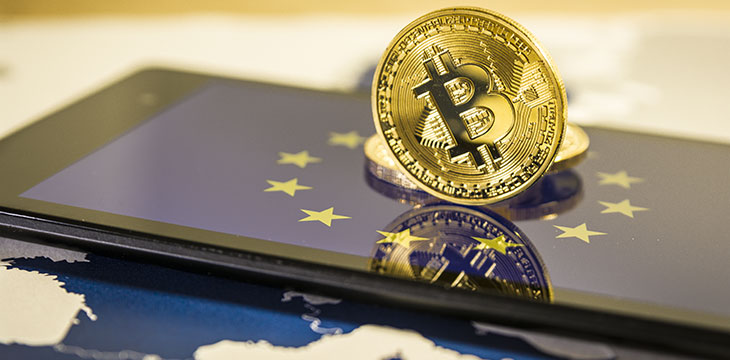|
Getting your Trinity Audio player ready...
|
According to a report by Cointelegraph auf Deutsch (Cointelegraph in German), the European Union (EU) has a new set of rules governing cryptocurrencies. The EU Fifth Anti-Money Laundering Directive came into effect on July 9, and established new legal guidelines for European financial regulators to use in managing cryptocurrencies in an effort to protect consumers, as well as the markets, from terrorism financing and money laundering activities.
A press release by the EU Commission on the subject said that the new rules, which can be read here, create stricter requirements relating to transparency that target “anonymous payments through prepaid cards [and] virtual currency exchange platforms.” The EU Commission explained, “The 5th Anti-Money laundering directive also increases the cooperation and exchange of information between anti-money laundering (AML) and prudential supervisors, including with the European Central Bank.”
To try and prevent the use of digital currencies for illegal activities, the commission explains that authorities need to be able to determine how the crypto is used. “For the purposes of anti-money laundering and countering the financing of terrorism (AML/CFT), competent authorities should be able, through obliged entities, to monitor the use of virtual currencies,” it said.
To comply with those guidelines, regulators have to be able to monitor the digital currencies and the commission has a response to that, as well. It asserted in its press release, “To combat the risks related to the anonymity, national Financial Intelligence Units (FIUs) should be able to obtain information allowing them to associate virtual currency addresses to the identity of the owner of virtual currency. In addition, the possibility to allow users to self-declare to designated authorities on a voluntary basis should be further assessed.”
The guidelines must be adopted into local laws by EU member states within 18 months. All 28 members of the EU approved of the regulations in a meeting held in April.
There are a few exceptions to the rules governing what are designated as digital currency under the new guidelines. The EU Commission stated that “local currencies”—currencies issued to only a city or region—and coins that are only used by a small number of individuals are excluded from the rules.

 02-27-2026
02-27-2026 




